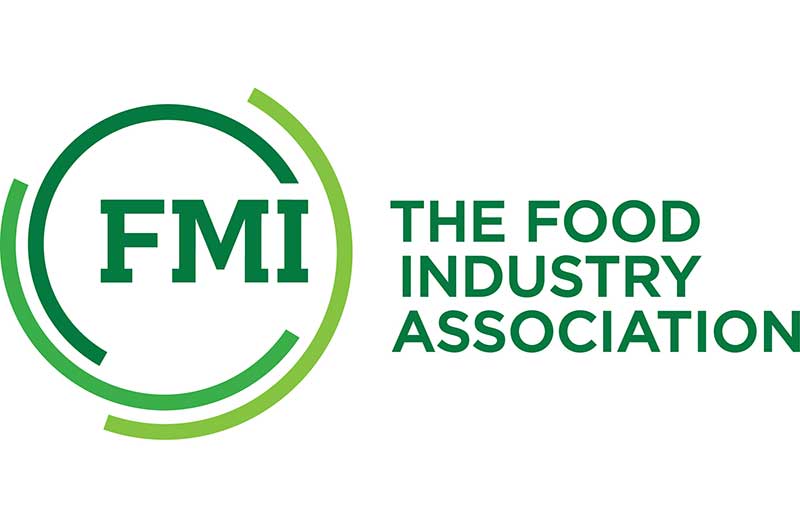FMI has launched a renewed brand identity as FMI – The Food Industry Association, reflecting its strategy to more broadly represent the food marketplace and embrace a more interconnected supply chain. FMI, which was formerly the Food Marketing Institute, recently expanded its membership.
“FMI provides the most productive forum for connecting and holding constructive dialogue across the food industry,” FMI President and CEO Leslie Sarasin said on the association’s announcement regarding a renewed focus. “Driven by consumer relevance, we are in the business of food, wherever it is bought, sold or produced, and we are well-positioned to represent everything in the shopping basket—and work closely with every participant in the marketplace.”
FMI says this new food marketplace requires an expanded aperture to include the array of experiences of today’s grocery shopper, and so will the FMI brand. Board of Directors Chairman Joe Sheridan, president and COO of Wakefern Food Corp., said, “Over the last two years, we’ve inspired a recommitment, a renewal of vows among the FMI membership. We’ve even changed who can be a member in the association as a logical step in a direction we’ve been traveling for years, offering greater parity between retailers and their product supplier partner members at the board of directors level.”
Sheridan said, “As our customers change, so do our industry and our association to better serve and reflect their needs.”
FMI maintains its position in the following strategic areas:
- Effectiveness on public policy – FMI says it plays a role in serving as the central voice of the food industry, leading the charge with legislative and regulatory bodies to bring attention and make progress on the issues that affect its members. FMI has a long track record of success, from affecting legislative bills, to arguing for causes at the highest level, including the U.S. Supreme Court.
- Commitment to the issues that matter – FMI says it tackles the issues that matter most to its members, helping illuminate today’s priorities and identify the next ones on the horizon. FMI employs thought leaders on mission-critical areas for the industry, such as food safety, and says it has the expertise and focus to serve as a go-to source for thinking, information and education.
- A forum for high-impact industry dialogue – FMI has a long-standing, close relationship with senior executives at food industry companies, as well as other industry associations, and provides a forum for bringing the right industry participants together to share best practices, problem-solve and operationalize for results.
- Dedication to consumer and operational insights – FMI says it is regarded as the foremost thought-leader in consumer and operations research. It envisions the future for both a physical and digital shelf where an omnichannel shopper will be the ultimate influencer in how the food industry does business.
FMI came into being more than 40 years ago when the Super Market Institute and the National Association of Food Chains merged. FMI says since 1977, it has established a brand equity that resonates with the greater food supply. Its new identity points to a more modern and inclusive strategy for the association to enhance the industry’s supply chain and support the noble work of feeding families and enriching their lives.
Sarasin said, “As Sidney Rabb, chairman of the board for the Super Market Institute and CEO of Stop & Shop said in 1949, ‘The essence of all my messages as president…can be reduced to one short sentence: Let us lead the way in forging ahead together that there may be more for all.’ There are no truer words to demonstrate respect for our history and the integrity of FMI as the food industry association.”
As the Food Industry Association, FMI says it works with and on behalf of the entire industry to advance a safer, healthier and more efficient consumer food supply chain. FMI brings together a wide range of members across the value chain—from retailers that sell to consumers, to producers that supply food and other products, as well as the wide-variety of companies providing critical services—to amplify the collective work of the industry.

